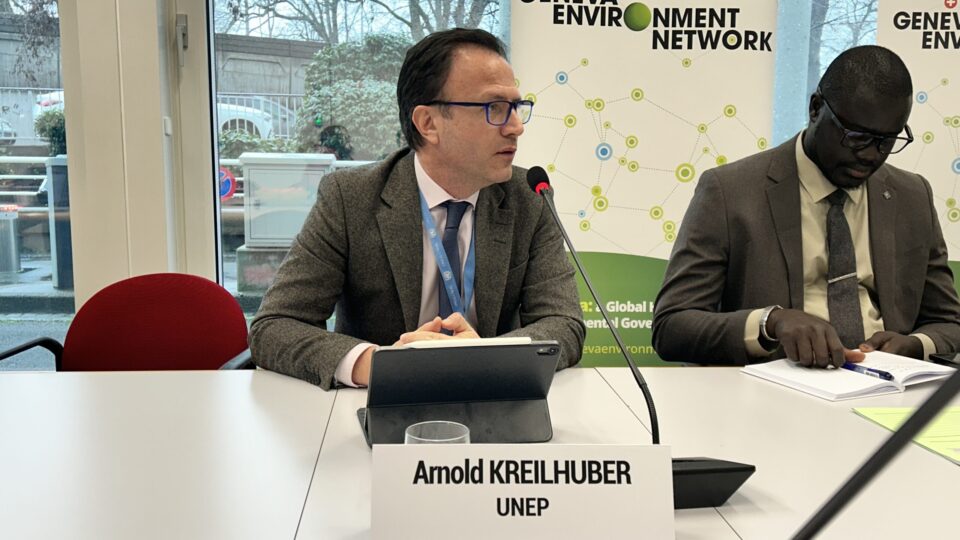The UK has a golden opportunity to take a leadership role in the global race for critical minerals—but only if it plays to its existing strengths and acts with urgency, experts said at the Innovation Zero World Congress in London.
A Pivotal Year for Policy
With the UK government’s long-awaited critical minerals strategy expected this year, momentum is building. According to Karen Hanghøj, Director of the British Geological Survey (BGS), the “window is still open” for the UK to help shape a more transparent and sustainable global minerals sector.
“We may not lead in production volume, but we have the skills, standards, and global influence to shape how it’s done—and how responsibly it’s done,” she said.
Hanghøj suggested that the UK strategy should include targets for domestic extraction, imports, and recycling—similar to the EU’s Critical Raw Materials Act. That legislation sets ambitious benchmarks for Europe, including sourcing no more than 65% of any critical mineral from a single country.
Shared Challenges, Shared Opportunities
While the EU and UK together consume nearly 30% of the world’s critical minerals, they produce just 2–3% of their own. That imbalance, combined with China’s dominance in mining and processing, makes collaboration between the UK and Europe both logical and strategic.
“Critical minerals underpin everything from clean energy to national defense,” noted Aidan Davy, co-COO of the International Council on Mining and Metals. “But we’re operating in a market that still favors short-term profits over long-term security.”
Innovation Over Extraction
The UK isn’t expected to become a mining superpower, but experts believe it can lead in technology, standards, and strategy.
Jeremy Wrathall, CEO of Cornish Lithium, said the UK must be “innovative and bold” to reestablish its role in the global supply chain. Minerals like lithium, cobalt, graphite, and rare earths are crucial for batteries, wind turbines, and other green tech—and the UK has the expertise to become a key enabler.
He praised the government’s decision to treat strategic minerals as matters of national significance, streamlining permitting for projects like the Trelavour lithium site in Cornwall.
Clusters, Capital, and Chemistry
One theme echoed by all panelists: the UK’s strength lies in clustering. By building regional industrial hubs—such as extraction centers in Cornwall and Devon, recycling in Birmingham, and refining in Teesside and Humber—the UK can foster economies of scale, attract investment, and create talent pipelines.
The UK also brings unique advantages:
- The City of London’s leadership in mining finance and green investment
- World-class expertise in chemistry and engineering
- BGS’s geological data and research capabilities
- Influence through international development aid to promote responsible mining abroad
“Soft power matters,” said Davy. “The UK can help emerging producers build ethical, resilient supply chains—if we act now.”
Redefining the Global Narrative
The conversation around critical minerals has been intensifying, but the turning point wasn’t geopolitical drama—it was the International Energy Agency’s 2021 report linking mineral security to the clean energy transition. That sparked a surge in global policy activity, with the number of government measures doubling from 200 to over 450 in just one year.
These fall into two broad categories: boosting domestic production and refining, or building trusted partnerships abroad. Yet the growing wave of tariffs and economic nationalism threatens collaboration.
“We’re seeing a shift toward zero-sum politics that could derail global cooperation,” Davy warned. Still, ESG principles remain front and center in the mining sector, even if the geopolitical climate complicates implementation.
A move toward harmonized, simplified responsible mining standards is also underway, with the Consolidated Mining Standard Initiative aiming to unify key frameworks into one global benchmark.
The Bottom Line:
The UK won’t win the critical minerals race on volume, but it doesn’t have to. By focusing on innovation, strategic partnerships, industrial clusters, and ethical leadership, Britain can secure a powerful role in one of the most vital sectors of the 21st century—if it acts fast and thinks big.


